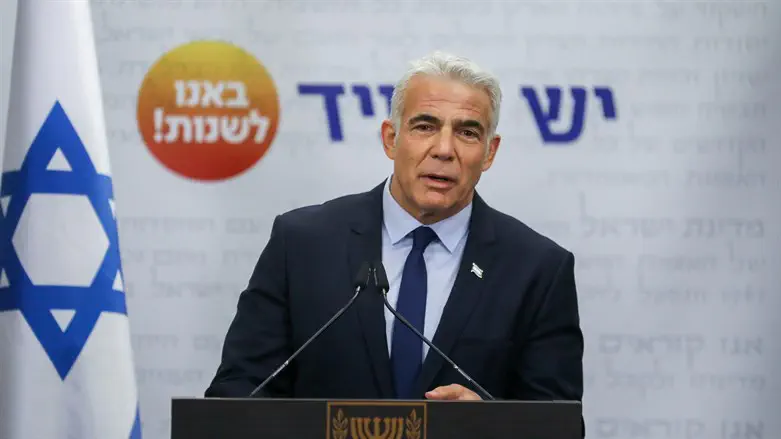
Foreign Minister Yair Lapid told The New York Times in an interview that Israel would have no problem if the United States entered a strong nuclear deal with Iran that would permanently limit its ability to assemble a nuclear weapon.
“We have no problem with a deal. A good deal is a good thing,” Lapid said, adding that the “second best would be no deal but tightening the sanctions and making sure Iran cannot go forward. And the third and worst is a bad deal.”
“The majority of Israelis, including the opposition, felt that the J.C.P.O.A. was not a good enough deal,” he said, referring to the nuclear pact by its formal name, the Joint Comprehensive Plan of Action. That was in part because of its “sunset provisions” on enrichment activities, he said, which would allow Iran to produce as much nuclear material as it wanted beginning in 2030.
The interview took place after Lapid’s meeting with US National Security Advisor Jake Sullivan, who visited Israel this week.
According to a report in Israel Hayom, Sullivan told senior Israeli officials during his meetings this week that the United States has formulated a plan to impose punitive measures and sanctions on Iran, in the event that the nuclear talks in Vienna break down without a satisfactory resolution.
The punitive measures being considered include harsher sanctions on the Iranian economy, particularly on the import and export of petroleum, and also issuing condemnations at the Security Council, application of sanctions directly against senior Iranian officials, and more.
In the interview with The New York Times, Lapid also ruled out imminently establishing diplomatic relations with Saudi Arabia or Indonesia, but said Israel was in talks with several countries that had previously sought to boycott it until the resolution of the Israeli-Palestinian conflict, but that were now considering normalizing ties.
He told the newspaper that discussions were taking place with “a few countries.” He ruled out an imminent détente with Saudi Arabia and Indonesia, saying was “too early” to speak about a full rapprochement.
In the meantime, he said, “what we’re determined to do is to make the Abraham Accords into a success story. We want people of the world, of the Middle East, to understand that this is working.”
The Foreign Minister also said his government was much more focused on internal issues like protecting Israeli democratic institutions and safeguarding the Israeli economy than on finding a solution to the Palestinian Arab question.
He underscored Israel’s opposition to American efforts to reopen a US consulate to the Palestinians in Jerusalem, saying that doing so would constitute a challenge to Israeli sovereignty in Jerusalem.
“Jerusalem is the capital of Israel,” stated Lapid. “And therefore, we think that there could be only an embassy and a consulate for Israel in Jerusalem.”
(Israel National News' North American desk is keeping you updated until the start of Shabbat in New York. The time posted automatically on all Israel National News articles, however, is Israeli time.)

